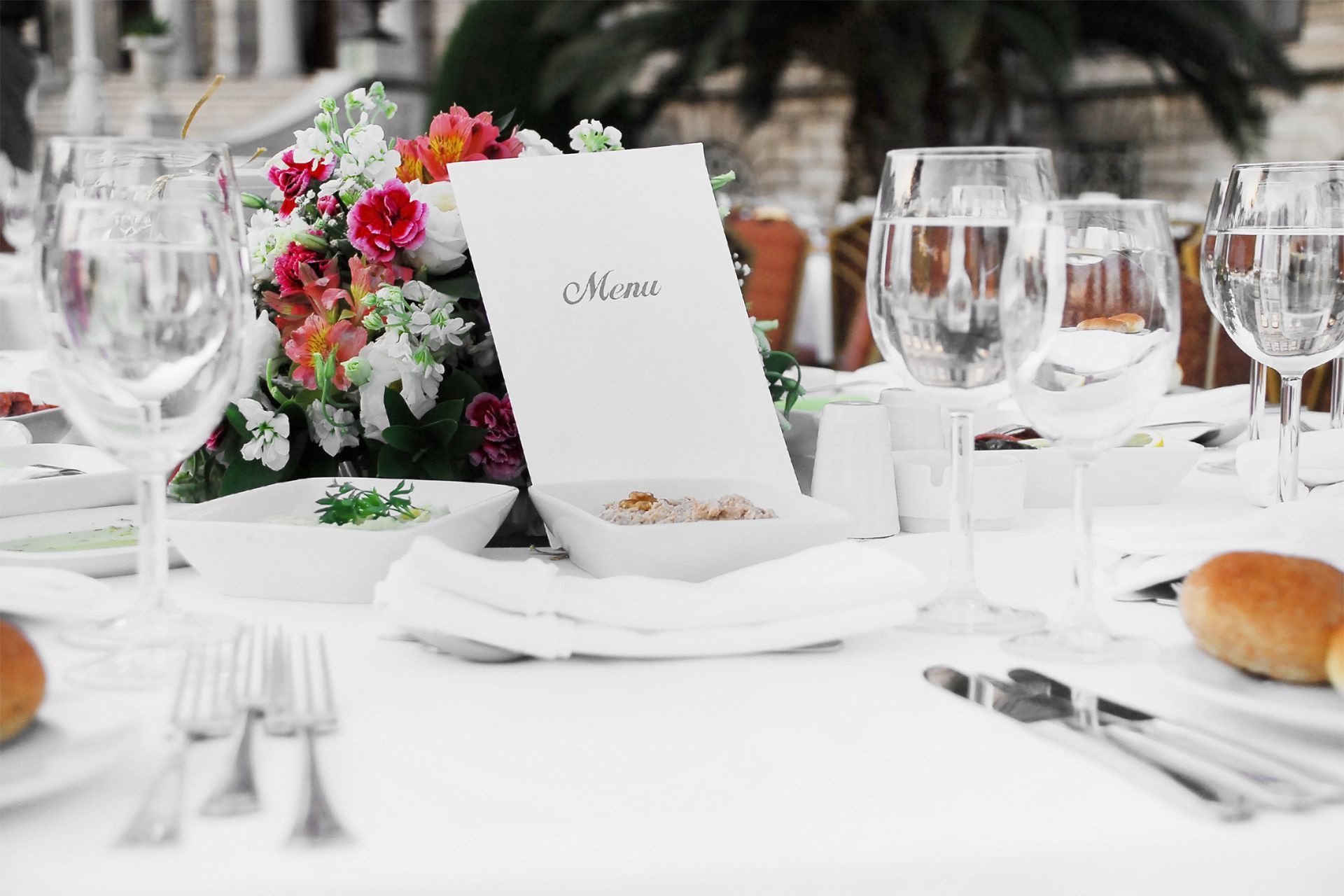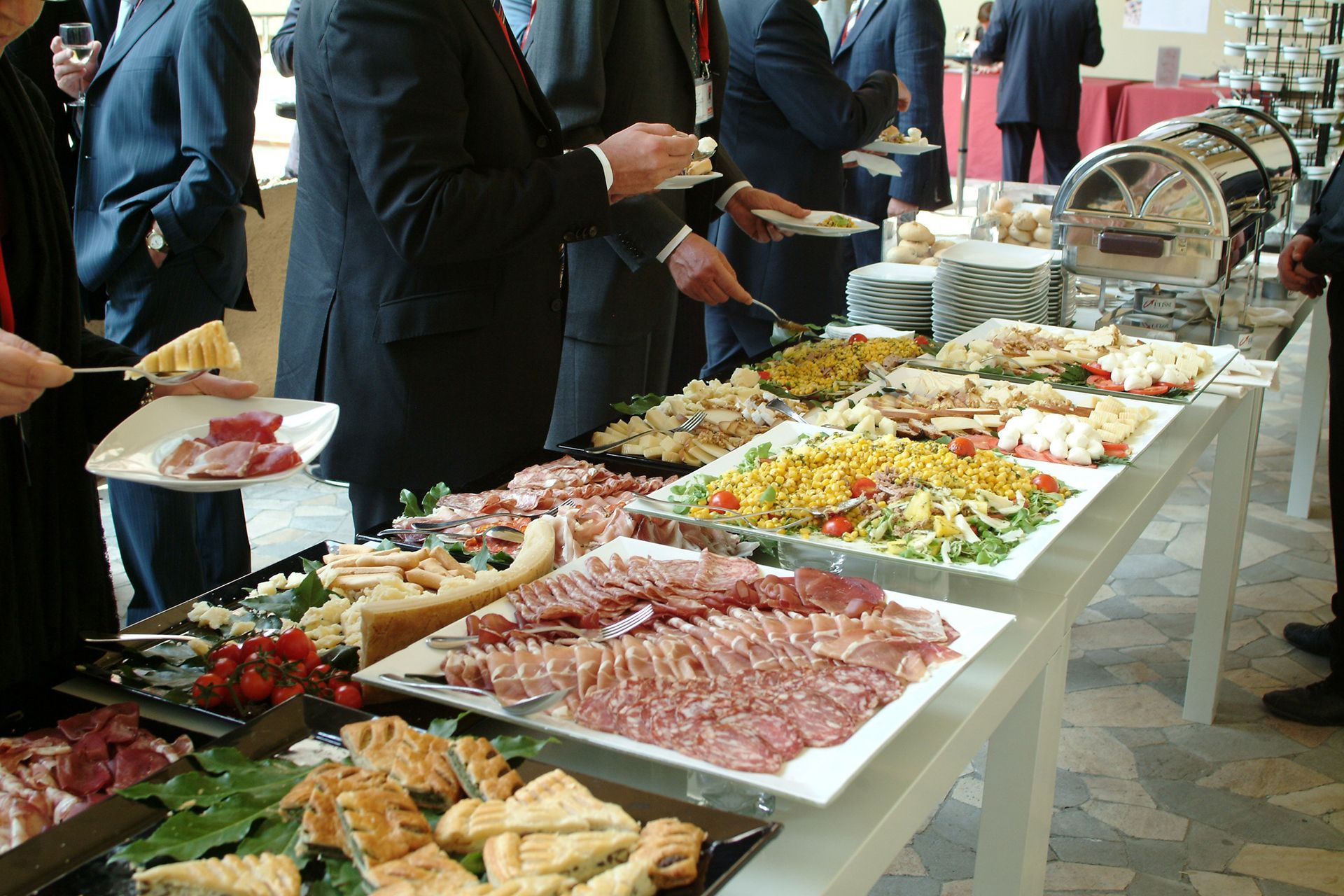Blog

By Direct Event Insurance
•
16 Mar, 2023
When organizing an event, it's crucial to consider all potential risks and liabilities that could occur during the course of the event. Even with the most meticulous planning and preparation, accidents can happen, and these accidents can lead to significant financial damages or even legal action. Liability insurance coverage is essential for any event, but it's important to understand that not all types of liability are covered under a standard policy. There are many things that could go wrong at an event that would be excluded from liability coverage, and it's essential to have Special Event Liability coverage to protect against these risks. One of the most significant risks at an event is bodily injury. This could occur in a variety of ways, from slips and falls to more serious accidents. If someone is injured at the event, the organizer could be held liable for medical expenses, lost wages, and other damages. Without Special Event Liability coverage, these costs could be significant. Property damage is another potential liability at an event. For example, if a vendor's equipment damages the venue, the organizer could be held responsible for repairs. Special Event Liability coverage can help to cover these costs, ensuring that the event is not financially ruined by unforeseen damages. In addition to bodily injury and property damage, there are other potential liabilities that could occur at an event. For example, if a vendor's product causes harm to a consumer, the organizer could be held liable. Special Event Liability coverage can help to cover the costs of any legal action that may arise in such situations. Another potential liability at an event is alcohol-related incidents. If alcohol is being served at the event, the organizer could be held liable for any accidents or injuries that occur as a result. Special Event Liability coverage can help to cover the costs of any legal action that may arise in such situations. It's important to note that liability insurance policies typically do not cover intentional acts of wrongdoing. If an event attendee intentionally causes harm to someone else, the organizer may not be protected by liability coverage. It's essential to have Special Event Liability coverage to protect against these risks. Naming the venue as an additional insured on the Special Event Liability policy is also important. This ensures that the venue is protected against any potential liabilities that could arise during the event. Without this protection, the venue could be held liable for damages, even if they were not directly involved in the incident. Similarly, each vendor, exhibitor, and subcontractor should have their own respective Special Event Liability policies that name the event's organizer as an additional insured. This ensures that each vendor is responsible for their own liability and protects the organizer from any potential damages that may arise from the vendor's activities. In conclusion, organizing an event comes with a significant amount of risk and potential liabilities. Liability insurance coverage is essential, but it's important to have Special Event Liability coverage to protect against the specific risks that could arise during the event. Naming the venue and each vendor as additional insured is also crucial to ensure that all parties are protected against potential damages. By taking these steps, event organizers can minimize their risks and ensure that their event is a success.

By Direct Event Insurance
•
16 Mar, 2023
Because the closest Airport can be miles away, and because the onsite observers are typically expensive, the most accurate form of easily available claim verification for a weather insurance policy is through the use of certified weather data from a third-party weather monitoring service. This is because it provides an objective and independent verification of the weather conditions that occurred during the policy period. Weather insurance policies are designed to protect businesses and individuals against financial losses that are directly caused by adverse weather conditions, such as rain, snow, wind, or temperature changes. These policies typically have specific criteria that must be met in order for a claim to be paid out, such as the amount of rainfall, wind speed, or temperature range that must be met. Using certified weather data from a third-party weather monitoring service provides the most accurate form of claim verification for a weather insurance policy because it provides an objective and independent verification of the weather conditions that occurred during the policy period. This type of data is collected by professional meteorologists using specialized equipment and techniques, and is widely recognized as the industry standard for weather verification. Often accessible via an app on your smartphone, certified weather data is also reliable and verifiable, which makes it easier for insurers to evaluate and process claims. Insurers can compare the weather data provided by the third-party monitoring service with the policy criteria to determine whether a claim is valid and should be paid out. Additionally, using certified weather data helps to reduce the potential for fraudulent claims. Because the data is collected and verified by a third-party, it is less likely to be manipulated or falsified by policyholders who may try to file a false claim. In summary, certified weather data from a third-party weather monitoring service is the most accurate form of claim verification for a weather insurance policy. It provides an objective and independent verification of the weather conditions that occurred during the policy period, is reliable and verifiable, and helps to reduce the potential for fraudulent claims. By using this type of data, insurers can accurately evaluate and process claims, and policyholders can have confidence that their claims will be fairly and accurately evaluated.

By Direct Event Insurance
•
16 Mar, 2023
Automated insurance systems, also known as insurtech, have become increasingly popular in recent years due to their convenience and accessibility. However, there are several potential pitfalls and disadvantages of buying insurance from an automated system with no human oversight. Here are some of the main concerns: Limited customization : Automated insurance systems typically offer a limited range of policy options, with little flexibility for customization. This means that customers may not be able to tailor their coverage to meet their specific needs, and may end up paying for coverage they don't need or missing out on important coverage that is not offered. Lack of personal touch : Without human oversight, automated insurance systems may lack the personal touch that many customers value. Customers may not be able to speak with a live agent or get personalized advice and support, which can be particularly challenging for complex or specialized insurance needs. Inaccurate or incomplete information : Automated insurance systems rely on algorithms and data inputs to generate policy quotes, which may not always be accurate or complete. Customers may not have the opportunity to ask questions or provide additional information that could impact their coverage or premiums. Limited customer support : Automated insurance systems may not offer robust customer support, particularly outside of regular business hours. Customers may have trouble getting the help they need in the event of a claim or other issue. Limited transparency : Automated insurance systems may not always be transparent about their pricing, coverage options, or terms and conditions. Customers may not fully understand what they are getting into when they purchase coverage, which can lead to confusion or dissatisfaction down the road. In summary, while automated insurance systems offer convenience and accessibility, they may not be the best choice for all customers. Customers who have complex or specialized insurance needs may benefit from the personalized advice and support of a live agent, and may want to consider more traditional insurance options. Additionally, customers should be aware of the potential pitfalls and disadvantages of automated insurance systems and carefully evaluate their options before making a purchase.

By Direct Event Insurance
•
16 Mar, 2023
Choosing a lower premium for event insurance simply because it is cheaper can be unwise for a few reasons. While a lower premium may seem more affordable upfront, it may end up costing more in the long run if a claim is filed. Here are a few reasons why: Lower Limits of Liability : Cheaper insurance policies may have lower limits of liability, which is the maximum amount the insurance company will pay out for damages or injuries. In the event of a claim, you may be responsible for paying any damages or injuries that exceed the policy limits. It is important to choose an insurance policy with appropriate limits of liability that match the size and nature of your event. Higher Deductibles : Cheaper insurance policies may have higher deductibles, which is the amount you are responsible for paying before your insurance coverage kicks in. Higher deductibles may mean that you will have to pay more out-of-pocket in the event of a claim. Limited Coverage : Cheaper insurance policies may have limited coverage, which means that certain types of damages or injuries may not be covered. It is important to read your policy carefully and understand what is covered and what is not. Special Event Liability policies with $1000 General Liability deductibles can also be more expensive in the event of a claim. While these policies may have lower premiums upfront, the $1000 deductible means that you will be responsible for paying the first $1000 of any damages or injuries before your insurance coverage kicks in. This can add up quickly if there are multiple claims or if the damages or injuries are significant. In general, it is important to choose an event insurance policy that provides appropriate coverage and limits of liability for your event, even if it means paying a higher premium upfront. Doing so can help protect you from financial loss in the event of a claim and provide peace of mind for you and your attendees. It is always a good idea to speak with an experienced insurance agent like David Carbrey at Direct Event Insurance Brokerage, LLC, to determine the best policy for your needs and budget.

By Direct Event Insurance
•
16 Mar, 2023
Host Liquor Coverage and Liquor Liability Coverage are two types of insurance coverage that are often used to protect businesses or individuals who serve alcohol at their events. While both types of coverage are related to alcohol consumption, they cover different aspects of liability. Host Liquor Coverage is a type of coverage that is typically included in a general liability insurance policy. It covers damages or injuries caused by an intoxicated guest who consumed alcohol that was provided by the event host. Host Liquor Coverage only applies to events that are hosted by individuals or businesses, such as private parties or corporate events. Liquor Liability Coverage, on the other hand, is a separate insurance policy that specifically covers damages or injuries caused by individuals who were served alcohol at an event. This type of coverage is often required for businesses that serve alcohol, such as bars, restaurants, or event venues. Liquor Liability Coverage can also cover legal fees associated with any lawsuits related to alcohol consumption. The main difference between Host Liquor Coverage and Liquor Liability Coverage is that Host Liquor Coverage is included in a general liability policy and applies to events hosted by individuals or businesses, while Liquor Liability Coverage is a separate policy that specifically covers damages or injuries related to alcohol consumption. It is important to note that both types of coverage have coverage limits, which is the maximum amount the insurance company will pay out for damages or injuries. Make sure to choose a coverage limit that is appropriate for the size and nature of your event. Additionally, both types of coverage may have exclusions related to alcohol consumption, so it is important to read your policy carefully and understand what is covered and what is not. In many cases, it's wise to have a seasoned professional like David Carbrey at Direct Event Insurance Brokerage, LLC, to assist with these more complicated coverage matters!

By Direct Event Insurance
•
16 Mar, 2023
If you are holding an event with liquor, there are several insurance risks to consider. Liquor liability insurance is essential for protecting your event and attendees from potential damages or injuries related to alcohol consumption. Here are some things you need to know about insurance risks related to serving alcohol at an event: Liquor Liability Insurance : Liquor liability insurance covers damages or injuries caused by intoxicated guests who were served alcohol at your event. It can also cover legal fees associated with any lawsuits related to alcohol consumption. Make sure to purchase liquor liability insurance before your event to protect your business and assets. Exclusions : Some insurance policies have exclusions related to alcohol consumption. Make sure to read your policy carefully to understand what is covered and what is not. If you are unsure about the coverage, speak with your insurance agent to clarify any questions you may have. Coverage Limits : Liquor liability insurance policies have coverage limits, which is the maximum amount the insurance company will pay out for damages or injuries. Make sure to choose a coverage limit that is appropriate for the size and nature of your event. Responsible Alcohol Service : Insurance companies may require you to follow responsible alcohol service practices, such as hiring professional bartenders or caterers who are trained in responsible alcohol service, offering non-alcoholic beverages, and monitoring guests' alcohol consumption. Failure to follow responsible alcohol service practices could void your insurance coverage. Additional Insurance Coverage : Depending on the nature of your event, you may need additional insurance coverage, such as general liability insurance, event cancellation insurance, or property insurance. Speak with your insurance agent to determine what additional coverage you may need. By understanding the insurance risks associated with serving alcohol at an event and obtaining the necessary insurance coverage, you can help protect your business, assets, and attendees from potential damages or injuries related to alcohol consumption.

By Direct Event Insurance
•
16 Mar, 2023
Event planning is a complex and multi-step process that requires careful attention to detail and excellent communication skills. Whether it's a corporate conference or a wedding, every event planner wants their event to be safe, successful, and memorable. Here is an extensive step-by-step guide to planning a safe and successful event. Step 1: Define the Purpose and Objectives of the Event Before starting to plan the event, it's essential to define its purpose and objectives. This step will help you stay focused and ensure that all the elements of the event are aligned with the event's overall goals. Ask yourself questions such as: What is the event's primary purpose? Who is the target audience? What is the desired outcome of the event? Step 2: Develop a Budget and Timeline Developing a budget and timeline is crucial to the success of any event. Create a detailed budget that includes all the expenses related to the event, such as venue rental, catering, decorations, and entertainment. Once you have a budget in place, create a timeline that outlines all the tasks that need to be completed, such as booking the venue, sending out invitations, and arranging for transportation. Step 3: Choose a Venue Selecting the right venue for your event is critical. Consider factors such as location, capacity, and accessibility. You'll also want to consider the venue's amenities, such as catering options, AV equipment, and parking. Make sure to tour the venue and ask the venue manager any questions you may have. Step 4: Create a Theme and Design Creating a theme and design will help you create a cohesive event. Consider the event's purpose, objectives, and target audience when selecting a theme. Once you've chosen a theme, start thinking about how you can incorporate it into the event's design, such as the decor, lighting, and table settings. Step 5: Select Catering and Entertainment Catering and entertainment are two critical elements of any event. Select a catering company that can accommodate dietary restrictions and preferences. When selecting entertainment, consider the event's theme and target audience. Do they prefer live music, a DJ, or a keynote speaker? Step 6: Ensure Event Safety and Security Event safety and security should be a top priority for every event planner. Ensure that the venue has proper security measures in place, such as cameras and trained security personnel. Have a first aid kit on hand, and consider hiring a professional medical team. Also, make sure the venue is accessible for those with disabilities. Step 7: Obtain the Proper Event Insurance Coverage(s) Event insurance is essential for event planners for several reasons. First, it helps protect them and their clients from financial losses if something goes wrong during the event. Second, it helps provide peace of mind for event planners and their clients, knowing that they are covered in case of any unforeseen circumstances. Finally, having event insurance can help event planners stand out from their competition, as it shows that they are responsible and professional. In most instances, the Venue will have specific Coverage requirements and often will provide examples of their Insurance requirements. David Carbrey at Direct Event Insurance Brokerage, LLC., is an experienced and trusted, long-term Broker in this industry and you can contact him directly, or get the information you need from his website at: https://directeventinsurance.com . Step 8: Promote the Event Promoting the event is crucial to its success. Start by creating a guest list and sending out invitations. Utilize social media and email marketing to spread the word about the event. Consider creating a hashtag for the event and encourage attendees to share their experiences on social media. Step 9: Prepare for the Event Day The day of the event can be hectic, but proper preparation can help alleviate stress. Ensure that all vendors and suppliers have everything they need and arrive on time. Have a designated area for registration and check-in. Have a backup plan in case of inclement weather or other unforeseen circumstances. Step 10: Execute the Event During the event, make sure to communicate with all vendors and suppliers to ensure everything runs smoothly. Have a designated point person for attendees to contact in case of any issues. Keep an eye on the event timeline and adjust as necessary. Step 11: Follow Up with Attendees After the event, follow up with attendees to thank them for attending and gather feedback. Consider sending out a survey to gauge their satisfaction and learn what you can improve for future events.

By Direct Event Insurance
•
16 Mar, 2023
Event planning can be a very fulfilling and rewarding career. However, it can also be a very stressful and unpredictable one. With so many variables to consider, it's important for event planners to take steps to protect themselves and their clients in case something goes wrong. One way to do this is by investing in event insurance. In this article, we will discuss the different types of event insurance available and why David Carbrey and Direct Event Insurance Brokerage, LLC is the best go-to broker/brokerage in the nation for all your insurance needs.

By Direct Event Insurance
•
01 Mar, 2023
Organizing an event requires a lot of planning, hard work, and investment. From weddings to corporate events, trade shows to concerts, there are numerous types of events that require a significant amount of resources to pull off. However, despite all the efforts put into planning, there are always unforeseen circumstances that can arise, resulting in potential financial losses. This is where event insurance comes in, offering protection against financial losses and other damages. In this article, we will discuss the top 5 reasons why you need event insurance for your next event. 1. Protection Against Liability Claims One of the most significant benefits of event insurance is protection against liability claims. For example, if someone attending your event slips and falls or sustains an injury, you may be held liable for their medical expenses and other related costs. With event insurance, you can have coverage that protects you from such lawsuits, ensuring that you can focus on the event itself, rather than worrying about potential financial losses. 2. Protection Against Property Damage Events typically involve a lot of equipment, such as sound systems, lighting, furniture, and decorations. These items are often expensive, and any damage to them can result in significant financial losses. Event insurance offers protection against property damage, covering the cost of repair or replacement of damaged items. 3. Protection Against Cancellation or Postponement Another benefit of event insurance is protection against cancellation or postponement due to unforeseen circumstances. For instance, if inclement weather causes your outdoor event to be canceled, you may suffer significant financial losses. Event insurance can help cover the expenses incurred due to cancellations or postponements, allowing you to reschedule the event without suffering any financial losses. 4. Peace of Mind Organizing an event can be stressful, with numerous factors to consider, including logistics, vendor management, and attendees' expectations. With event insurance, you can have peace of mind knowing that you are covered in case anything goes wrong. This assurance can help you focus on other aspects of the event, such as making it a success and meeting your goals. 5. Compliance with Venue Requirements Many event venues require event insurance as a part of their rental agreement. By having event insurance, you can ensure that you are compliant with the venue's requirements, avoiding any legal or financial penalties that may arise otherwise.
Business Hours
Mon - Fri: 9:00 AM - 5:00 PM
Sat - Sun: By Appointment Only
Clients can make arrangement for appointments after hours.
Payment Options
We Also Accept: Wire Transfer
© 2024
Direct Event Insurance Brokerage, LLC

